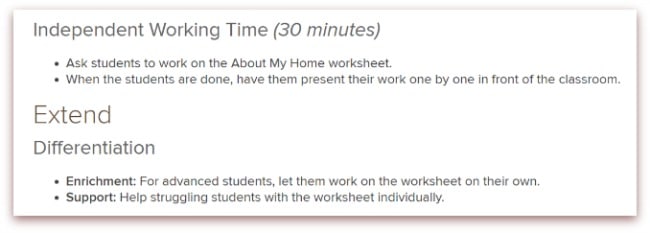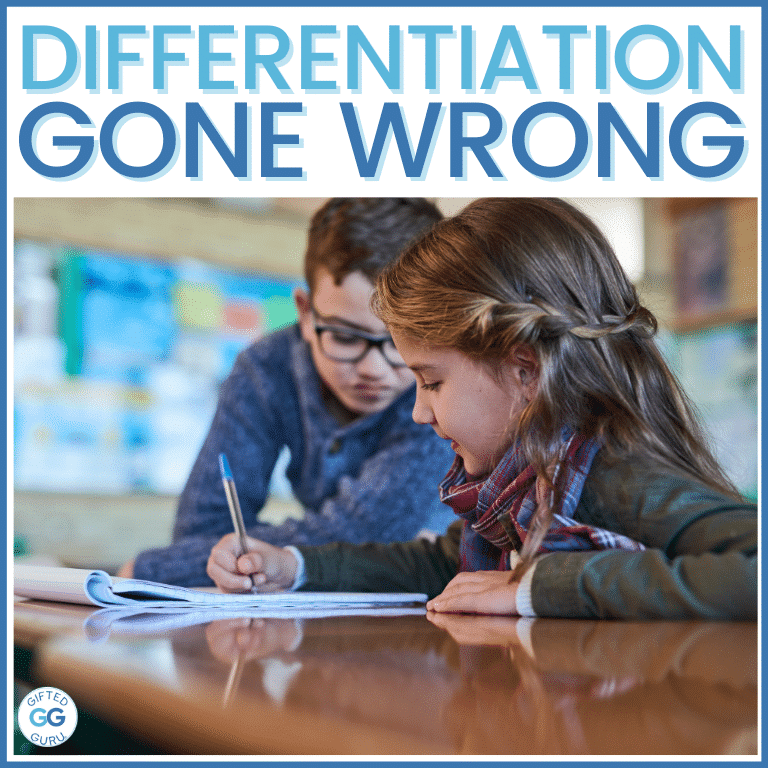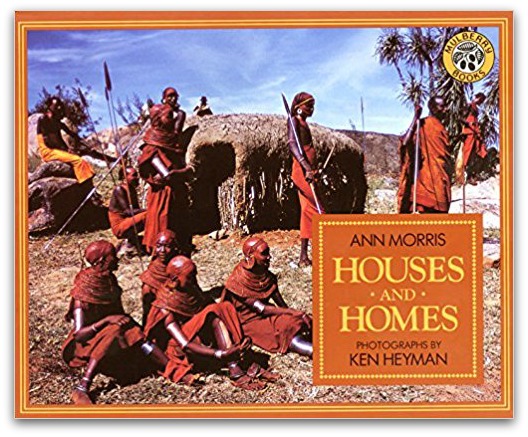Differentiation Gone Wrong:
I’m a big believer in differentiation. I mean huge. I often explore the internet looking for good examples of differentiation. And sometimes, I find examples of differentiation gone wrong.
Here’s one such example:

I don’t whether it’s nice to say where I got this or not, so I won’t, but it’s from a large website.
Where this goes wrong:
Oh, where to start, where to start?
First, let’s state the obvious: this is a Kindergarten lesson plan that asks kids to work independently for thirty minutes on a worksheet.
Do you need a second to ponder that?
So, this isn’t a very good lesson plan to begin with, and it shouldn’t surprise us that the differentiation piece is not effective.
Second, the instruction for differentiation is plain silly. “Let them work on the worksheet individually.” Wait, what?
Isn’t that what everyone’s doing? I mean, it says, “Independent Working Time,” doesn’t it? So how is that different, exactly?
Also, most gifted kids prefer to work alone, so how is this a challenge?
What could you do instead?
Before the worksheet, there was this instruction:

The book mentioned is this one by Ann Morris:
It’s a great, limited text book with pictures of houses all around the world.
In order to truly differentiate for gifted students, I’d consider doing any/all of the following instead of the explicit instruction and worksheet:
- Rather than the teacher’s explaining to the students how the houses differ, have the students sort the houses into categories they think of themselves.
- Using a globe, have them look up the cities/countries of the houses.
- Have them estimate the distances between the houses.
- Have them analyze if there is a correlation between physical distance and difference in house structure/materials.
- Have them identify the houses that are most/least like their own.
- Have them draw a house that would be likely to be found in a certain climate. Have them trade with another student and guess where that house is from.
- Have them use a double bubble map to compare a house in a very cold climate to a house in a very hot climate.
These are just a few ideas, and I hope you see the idea behind them. I want them thinking differently, not just doing differently.
And I definitely don’t want the teacher thinking for them.
It’s an easy shift.
While many teachers resist differentiation because they think it takes too much time, I hope you can see from the example above that you can do it very quickly.
I gave myself literally five minutes to come up with the ideas, and it didn’t even take all of the time.
We can successfully differentiate for gifted kids without resorting to fake differentiation like this example.

Note: Sometimes I use affiliate links, which means that if you click through and buy something, I get a few pennies (to buy more books!). It will never cost you anything extra.






